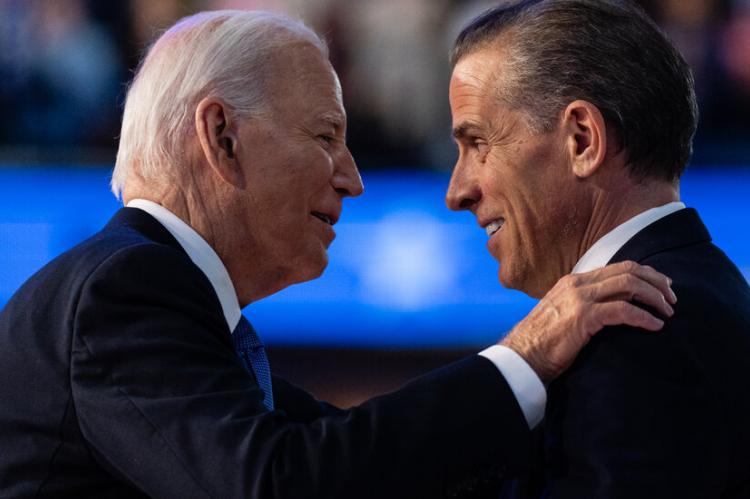The Politics of Justice: What President Biden’s Pardon of His Son Reveals About U.S. Global Influence
WORLD
By Omar Silva
Editor: National Perspective Bz – Digital 2024
Belize City: Monday, 2nd December 2024
The recent pardon granted by U.S. President Joe Biden to his son, Hunter Biden, has sparked intense debate, both within the United States and abroad. This decision, which contradicts the president’s earlier assurance to avoid interfering in his son’s legal matters, raises serious questions about the politicization of justice in the United States and its implications for global leadership.
President Biden justified the pardon by stating that his son was “selectively and unfairly prosecuted,” attributing the legal challenges to politically motivated attacks. While this may provide a domestic rationale, it undeniably amplifies international perceptions of double standards within the U.S. justice system. This is particularly concerning given Biden’s own statements earlier in his presidency, vowing to respect the independence of the legal process.
A Global Mirror Reflecting Domestic Contradictions
The pardon comes at a time when the United States is facing growing scrutiny over its actions on the global stage. Just as Biden pointed to political meddling in Hunter’s case, critics have long accused the U.S. of meddling in the political and judicial systems of other nations to suit its foreign policy objectives.
The case of the International Criminal Court (ICC) is illustrative. The U.S. has rejected ICC authority over allies like Israel, even as the court investigates war crimes allegations, including those related to Prime Minister Benjamin Netanyahu’s actions against Palestinians. This selective application of international justice aligns with the same pattern critics see in Biden’s domestic intervention: justice tailored to protect allies and interests, rather than upholding universal principles.
Sanctions, Sovereignty, and Hegemony
The U.S.’s approach to economic sanctions further highlights its double-edged narrative. Whether targeting nations in the BRICS coalition or smaller states asserting their sovereignty, these sanctions often prioritize U.S. geopolitical dominance over the freedom and equality it claims to champion. President-elect Donald Trump’s recent vow to impose 100% sanctions on BRICS member nations reinforces the idea that the U.S. sees itself as the world's enforcer, even at the risk of alienating allies and trading partners.
Yet this aggressive stance risks backfiring. The world is rapidly shifting toward a multipolar order, with coalitions like BRICS actively seeking alternatives to U.S. economic and political dominance. By doubling down on sanctions and interventionist policies, the U.S. risks not only isolating itself but also accelerating the erosion of its global influence.
Implications for Leadership
President Biden’s pardon of his son Hunter symbolizes more than just a personal decision; it encapsulates the contradictions of a nation struggling to reconcile its domestic policies with its international aspirations. How can the U.S. credibly demand freedom, justice, and equality from other nations when its own actions reflect selective enforcement of these ideals?
This inconsistency erodes the U.S.'s ability to lead by example. It emboldens critics who view American advocacy for democracy and human rights as self-serving rather than principled. As emerging powers like BRICS gain traction, the U.S. must ask itself whether it wants to adapt to a cooperative global order or risk further isolation.
The Thin Line Between Leadership and Isolation
The United States faces a choice: it can realign its actions with its professed ideals, or it can continue down a path that many view as hegemonic and hypocritical. The pardon of Hunter Biden, while a domestic matter, serves as a stark reminder of the broader challenges facing U.S. leadership. It mirrors the selective justice and political interference that many nations accuse the U.S. of perpetuating worldwide.
As the world watches, the Biden administration—and the broader American political system—must confront the reality that its actions at home reverberate far beyond its borders. Justice, freedom, and equality are not just lofty ideals to be preached; they must also be practiced.
Call to Action:
For the United States to reclaim its credibility, it must address these contradictions head-on, ensuring that justice—whether domestic or international—is applied equitably. Without such reforms, the thin line between global leadership and isolation may soon become an irreparable divide.
- Log in to post comments

